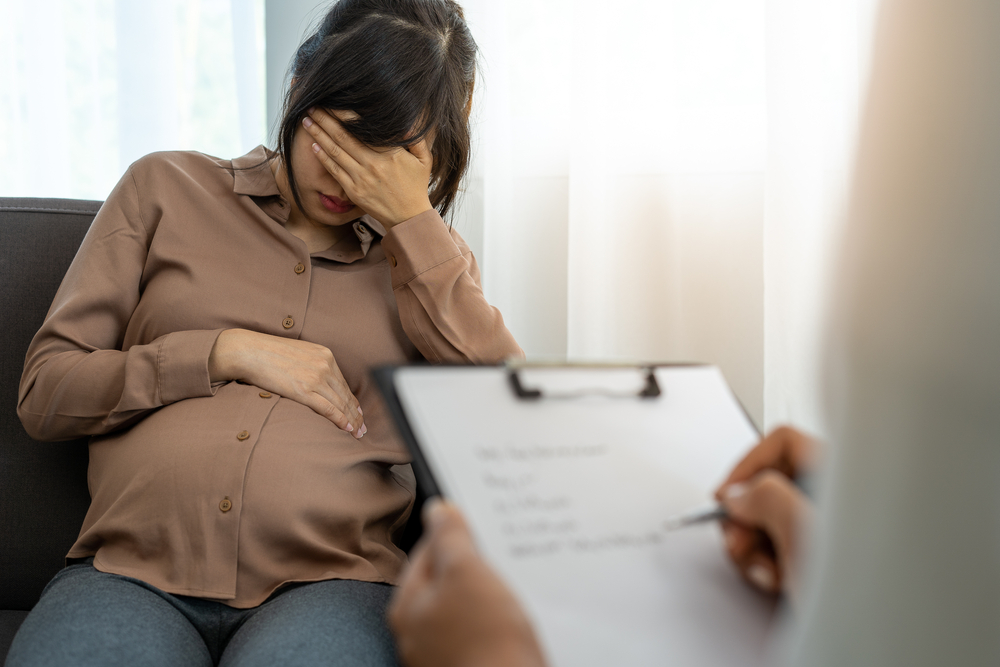Pregnancy is often portrayed as a time of joy and excitement, but for some women, it can be a challenging journey marked by emotional turbulence. Depression during pregnancy, also known as antenatal or prenatal depression, is a condition that deserves our attention and understanding.
Together in this article, we will explore the complexities of depression in pregnancy, including its causes, symptoms, potential risks, and available support. By shedding light on this important topic, we hope to provide valuable insights and resources for expectant mothers and their loved ones.
Table of Contents
How to Recognize Depression in Pregnancy
Depression in pregnancy may manifest differently than typical depressive symptoms. It’s crucial to be aware of the signs, such as persistent sadness, feelings of hopelessness, changes in appetite, sleep disturbances, and loss of interest in previously enjoyed activities.
Additionally, anxiety, irritability, and difficulty concentrating may coexist with depressive symptoms. Understanding and recognizing these signs can lead to early intervention and support.
Mood Swings or Depression?
Pregnancy can be challenging when it comes to mood swings. However long episodes of mood swings that affect your day to day activity can be a major sign of underlying depression. In fact, a study shows that mood swings in women is usually much more than hormonal fluctuation pregnant or not.
If you experience any one of the following emotions then its best to immediately consult with an expert psychologist;
- Always thinking of dealth or taking your own life
- Feeling depressed, low throighout the day
- You feel depressed consistenyl for 2 consecutive weeks
- Feeling worthless and hopeless all the ime
- Difficulty in talking, composing your words, concentrating and making life decisions
- Not feeling any pleasure or interest in any daily life activities constantly for two weeks straight.
If you are looking for how to deal with this new situation, here is a small helpful guide on how to help with pregnancy week after week.
What are Potential Causes and Risk Factors
Depression in pregnancy can arise from a combination of biological, psychological, and social factors. Hormonal changes, a history of depression or anxiety, personal or family history of mental health or personality disorders, stressful life events, relationship difficulties, and lack of social support are among the common risk factors. It’s important to note that depression during pregnancy can affect women regardless of their age, socioeconomic status, or background.
- If there is any prior history of depression, then the chances of a new mother falling into depression goes higher.
- Unwanted pregancgy, or no attachment during the pregnancy phase
- High episode of pre-existing anxiety in mother.
- Major life stress or PTSD
- Sexual or physical abuse from partner or any other voilence
- Lack of good social support
- Unhealthy relationship with partner, including lack of communication
- Existing medical condition such as obiesty, diabetes or migraines.
- Single parent is more likely to fall into depression
- Active Smoking or Passive Smoking
- Previous history of complicated pregnancies or miscarriage
- Body image dissatisfaction
- Negative personality traits (high levels of neuroticism)
- Previous family history of depression
Impact on the Mother and Baby
If left, untreated, studies show that untreated depression during pregnancy can have significant consequences for both the mother and the developing baby. Maternal depression can increase the risk of preterm birth, low birth weight, and developmental problems in the child. It may also impact the mother’s ability to bond with her baby and take care of herself during pregnancy. Understanding these potential risks underscores the importance of early identification and support for women experiencing depression in pregnancy.
Seeking Support and Treatment
No woman should face depression in pregnancy alone. Seeking support from healthcare providers, mental health professionals, and support groups can be immensely beneficial. Treatment options may include therapy, counseling, support groups, and, in some cases, medication. It’s essential for expectant mothers to have open and honest conversations with their healthcare providers to explore the best course of action for their unique situation.
Self-Care and Coping Strategies
In addition to professional support, self-care and coping strategies play a vital role in managing depression in pregnancy. Prioritizing rest, engaging in regular physical activity, maintaining a balanced diet, practicing relaxation techniques, and leaning on a strong support system are all valuable strategies. Engaging in activities that bring joy and incorporating mindfulness exercises can also promote emotional well-being.
The Importance of Partner and Family Support
The support of partners, family members, and friends is invaluable in helping women navigate depression during pregnancy. Encouraging open communication, providing emotional support, assisting with practical tasks, and actively participating in appointments and discussions with healthcare providers can make a significant difference in the mother’s well-being.
A Final Word from Healthwire
Depression in pregnancy is a multifaceted and important issue that deserves attention and understanding. By recognizing the signs, understanding the causes and risks, seeking support, and implementing self-care strategies, women can effectively manage depression during this critical time.
If you see the above-mentioned symptoms of someone who is struggling with depression during pregnancy then you must book your appointment instantly with Healthwire’s top psychiatrist Dr. Muhammad Imran Sharif for immediate treatment.
With the right support, expectant mothers can overcome the challenges they face, ensuring the well-being of both themselves and their precious babies.
Let’s continue to foster awareness, empathy, and support for women experiencing depression in pregnancy, offering them the resources and care they need for a healthy and fulfilling journey to motherhood.
